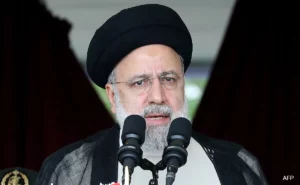Hezbollah Walkie-Talkies and Radios EXPLODE after Pagers

Israel, Hezbollah, explosions
The recent escalation in the conflict between Israel and Hezbollah has been marked by a series of devastating explosions linked to communication devices, notably pagers and walkie-talkies. This sequence of events has prompted Israel to declare a “new phase” of war, focusing military efforts on the northern front with Lebanon. The implications of these developments are profound, affecting not only the immediate region but also international diplomatic relations.
Background of the Conflict
The conflict between Israel and Hezbollah has intensified since the onset of hostilities following Hamas’s attacks on October 7, 2023. In retaliation, Israel launched extensive military operations in Gaza, which have resulted in significant casualties and destruction. Hezbollah, an Iran-backed militant group based in Lebanon, has engaged in frequent exchanges of fire with Israeli forces along the border, complicating the regional security landscape.
Recent Explosions
On September 17 and 18, 2024, a series of explosions occurred in Lebanon, first involving pagers used by Hezbollah members and subsequently walkie-talkies and other electronic devices. The Lebanese health ministry reported at least 14 deaths and over 450 injuries from the latter explosions alone. The blasts coincided with funerals for Hezbollah fighters killed in the earlier pager explosion, creating a chaotic scene as mourners gathered to pay their respects.
Details of the Explosions
The initial incident involved remote-controlled detonations of pagers across Lebanon, which Hezbollah attributed to Israeli interference. Following this, hundreds of walkie-talkies exploded simultaneously in various locations, including southern suburbs of Beirut and areas known as Hezbollah strongholds. Reports indicated that these devices were rigged with explosives, raising concerns about their use as tools for psychological warfare against Hezbollah operatives.The explosions have drawn widespread condemnation and concern from various international entities. For instance, UN Secretary-General Antonio Guterres called for maximum restraint among all parties involved to prevent further escalation. Meanwhile, Iranian officials condemned the attacks as acts of terrorism by Israel.
Israel’s Response
In light of these developments, Israeli Defense Minister Yoav Gallant announced a shift in military strategy towards the northern front with Lebanon. He emphasized that this “new phase” requires increased military presence and resources directed at ensuring the safety of Israeli communities near the border. Gallant’s remarks signal a potential escalation in military operations against Hezbollah, which could lead to broader regional conflicts.
Military Implications
The Israeli military has indicated that it possesses capabilities that have not yet been activated, suggesting that further actions may be forthcoming if tensions continue to rise. Experts warn that an all-out assault on Hezbollah could provoke significant retaliation from the group, which has vowed to respond to these attacks with force.
Humanitarian Concerns
The humanitarian impact of these explosions cannot be understated. Hospitals in Lebanon have been overwhelmed with casualties from both waves of explosions. Medical personnel have been called to duty urgently as hospitals prepare for an influx of injured individuals suffering from severe injuries including amputations and facial traumas. The civilian population is understandably alarmed by the increasing violence and instability.
Conclusion
The situation remains fluid and fraught with danger as both sides prepare for potential escalations. The use of communication devices as weapons marks a new chapter in modern warfare tactics employed by both Israel and Hezbollah. As international calls for restraint grow louder, the prospect of further violence looms large over Lebanon and Israel, raising fears of a broader conflict that could destabilize the region even further.






